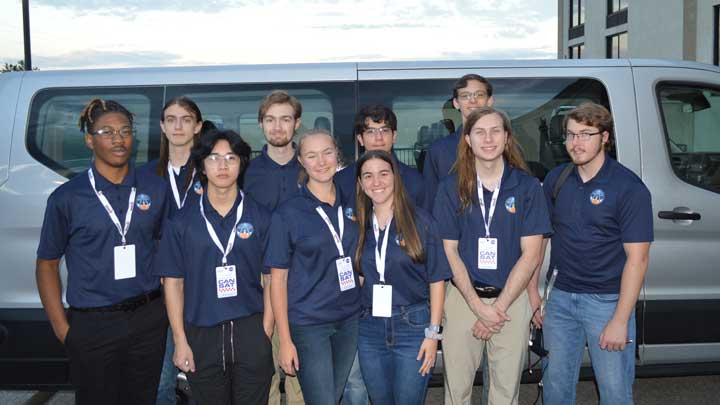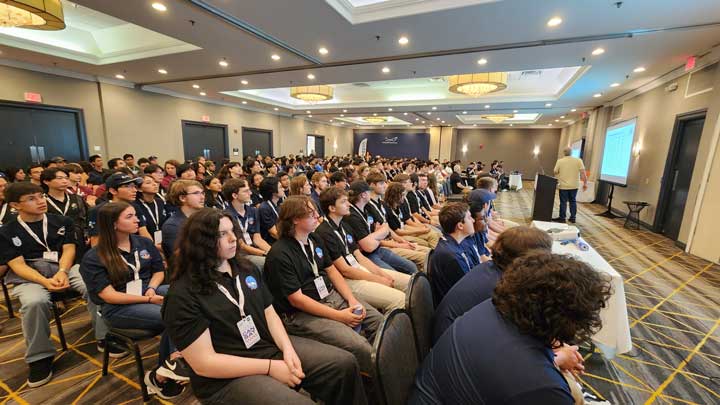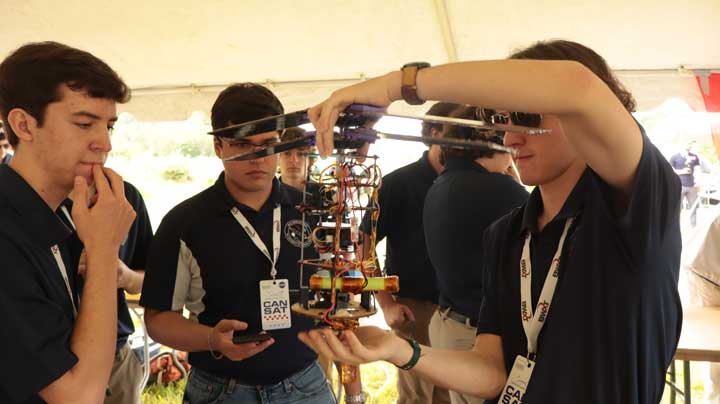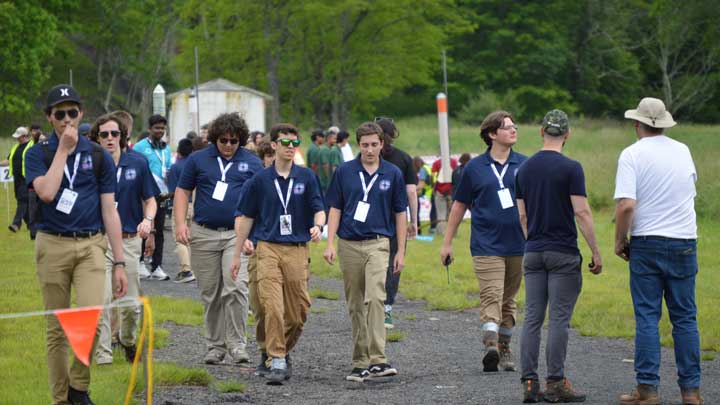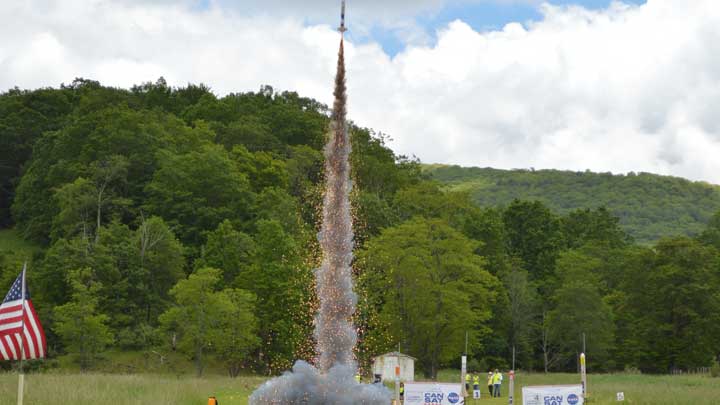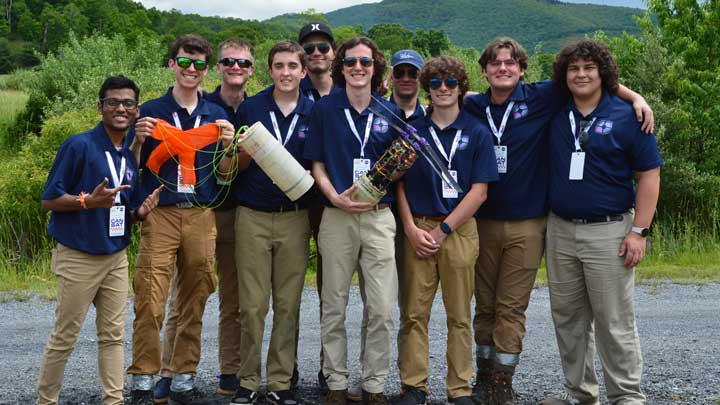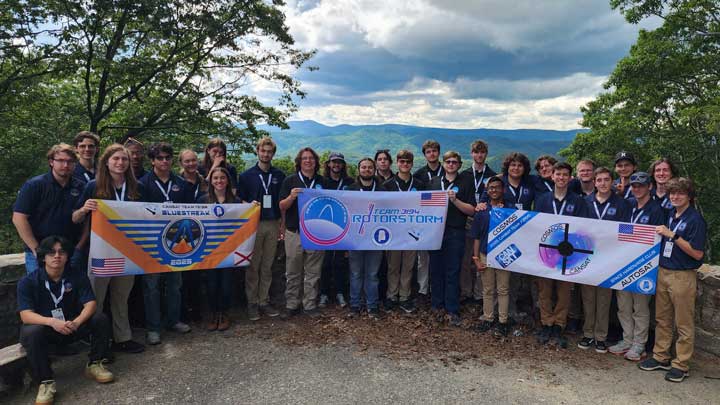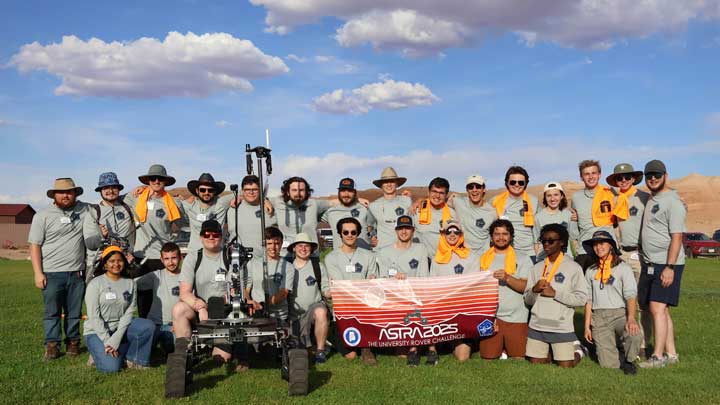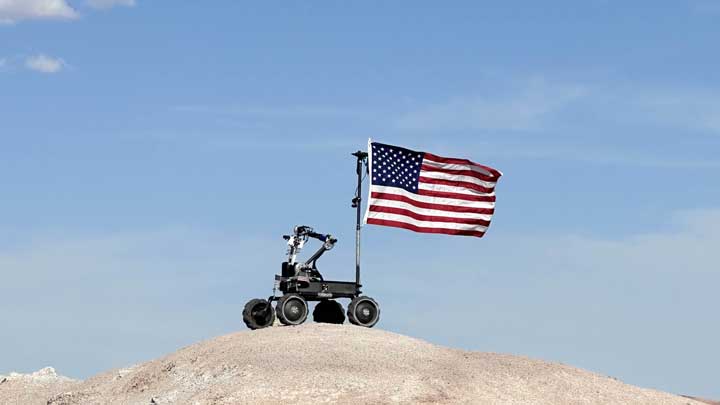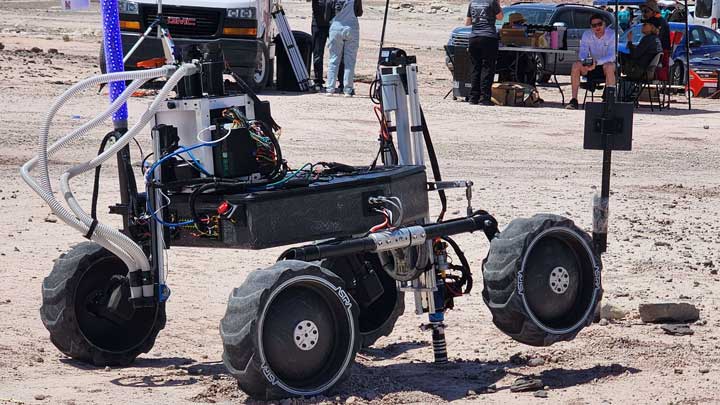UAH CanSat and rover teams notch winning performances in 2025 national and international competitions
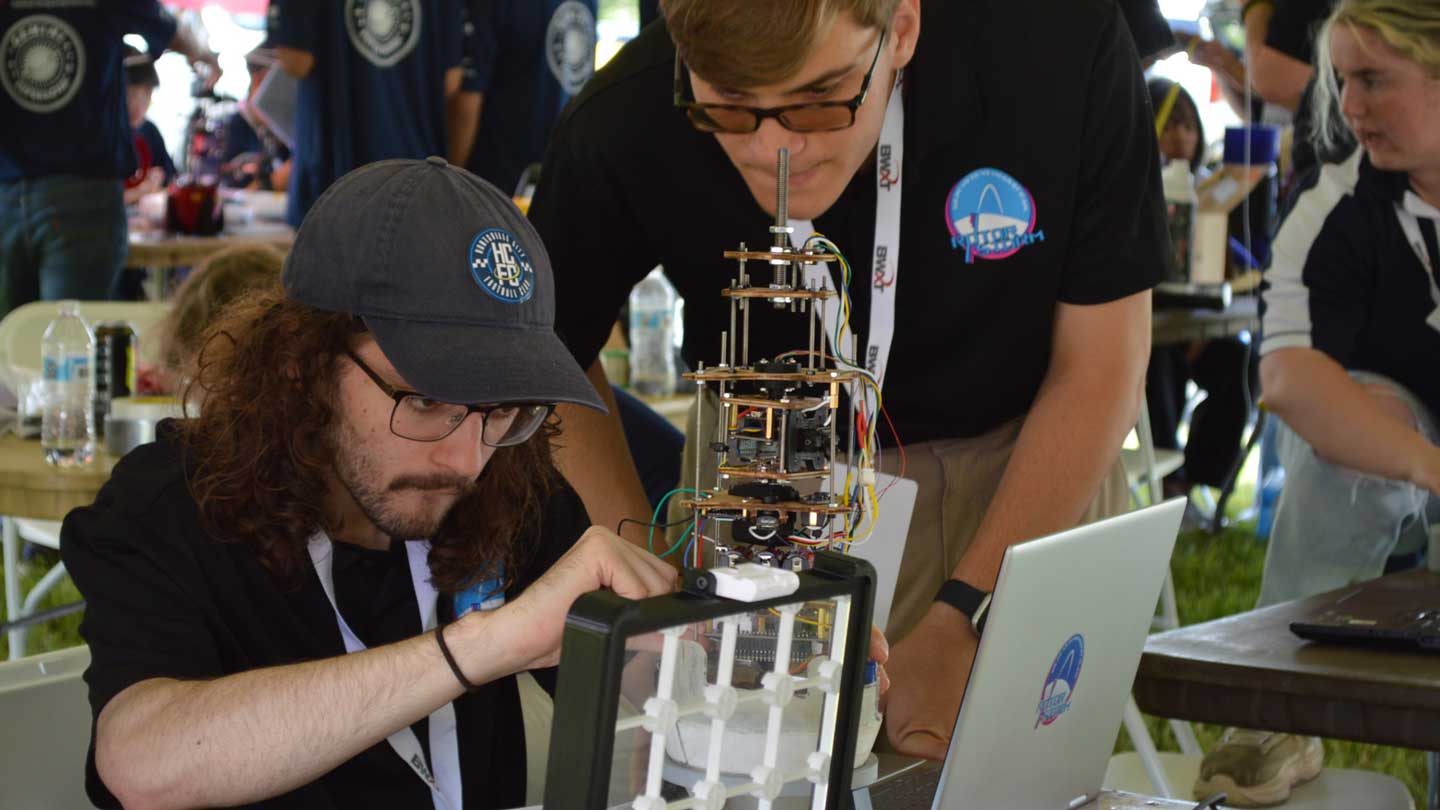
UAH students prepare CanSat payload for launch during 2025 International CanSat competition held in Monterey and Staunton, Va.
Three CanSat teams at The University of Alabama in Huntsville (UAH), a part of The University of Alabama System, placed first, second and sixth nationally in the 2025 International CanSat competition held in Monterey and Staunton, Va. UAH teams BlueStreak, Cosmos and Rotorstorm also placed sixth, eighth and fourteenth, respectively, in the international rankings for the annual event that showcases student-built CanSats, a type of miniature satellite designed to simulate an actual space mission.
The projects challenge students to fit all major satellite subsystems, such as power, sensors and communication, into a relatively small volume. Originally, CanSats were literally the size of a soda can, but current payloads are roughly two-and-a-half times larger than the first CanSats launched in 2008. Once fully loaded, each CanSat is then launched by a rocket or deployed from a balloon to carry out a mission, which typically includes collecting data on temperature and pressure, before landing safely.
Hosted by the American Astronautical Society, the competition features university teams from around the world participating in an eight-month cycle of multiple deliverables, presentations and testing milestones. The competition concludes with each school squaring off over four days, with each squad participating in preflight briefings, completing Flight Readiness Reviews, launching their hardware at the competition site and delivering Post Flight Review presentations.
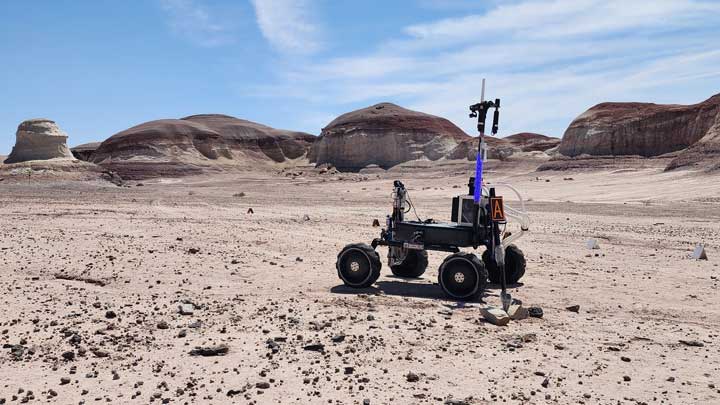
UAH ASTRA rover performing tasks during robotics competition for university students held at Mars Desert Research Station (MDRS) near Hanksville, Utah.
This year’s primary objective was to descend using a passive autogyro system, an experimental atmospheric descent mechanism that uses unpowered, freely rotating blades to generate lift and slow the descent of a small payload through Earth's atmosphere. The system is passive because it relies solely on the natural aerodynamic forces of the free-falling motion to make the rotor spin and produce lift, requiring no power source, attitude sensors or active control mechanisms after deployment.
“Notably, 93% of UAH’s 29 competing team members were first-year students, entering the season with only the two-month Space Hardware Club (SHC) training program as their foundation,” explains Alexander Burak, AutoSat Program Manager for the SHC. “Competing against primarily upperclassmen and graduate students from around the world, their performance was nothing short of exceptional.”
In addition, UAH team ASTRA placed 10th internationally out of 38 university teams that reached the competition level from a pool of 116 initial entrants in the annual University Rover Challenge (URC).
The robotics competition for university students is held at the Mars Desert Research Station (MDRS) near Hanksville, Utah. Student teams design and build rovers to perform tasks that would be necessary for astronauts exploring Mars, such as science collection, equipment servicing and autonomous navigation, as seen in this video. The event takes place in a challenging desert environment that resembles the Martian landscape.
“ASTRA conducted on-site practice sessions in preparation for the event, and the team successfully ran the rover through the science, equipment servicing, extreme retrieval and autonomy missions,” Burak says. “While each mission went smoothly, the team identified several areas for improvement to focus on throughout the upcoming year. With more hands-on training, frequent testing and a few strategic upgrades, they aim to elevate their performance even further.”
The Space Hardware Club at UAH provides access to hands-on hardware and software engineering experience, along with opportunities to conduct meaningful scientific research for any enrolled UAH student, from your first weeks on campus to graduation and beyond.
